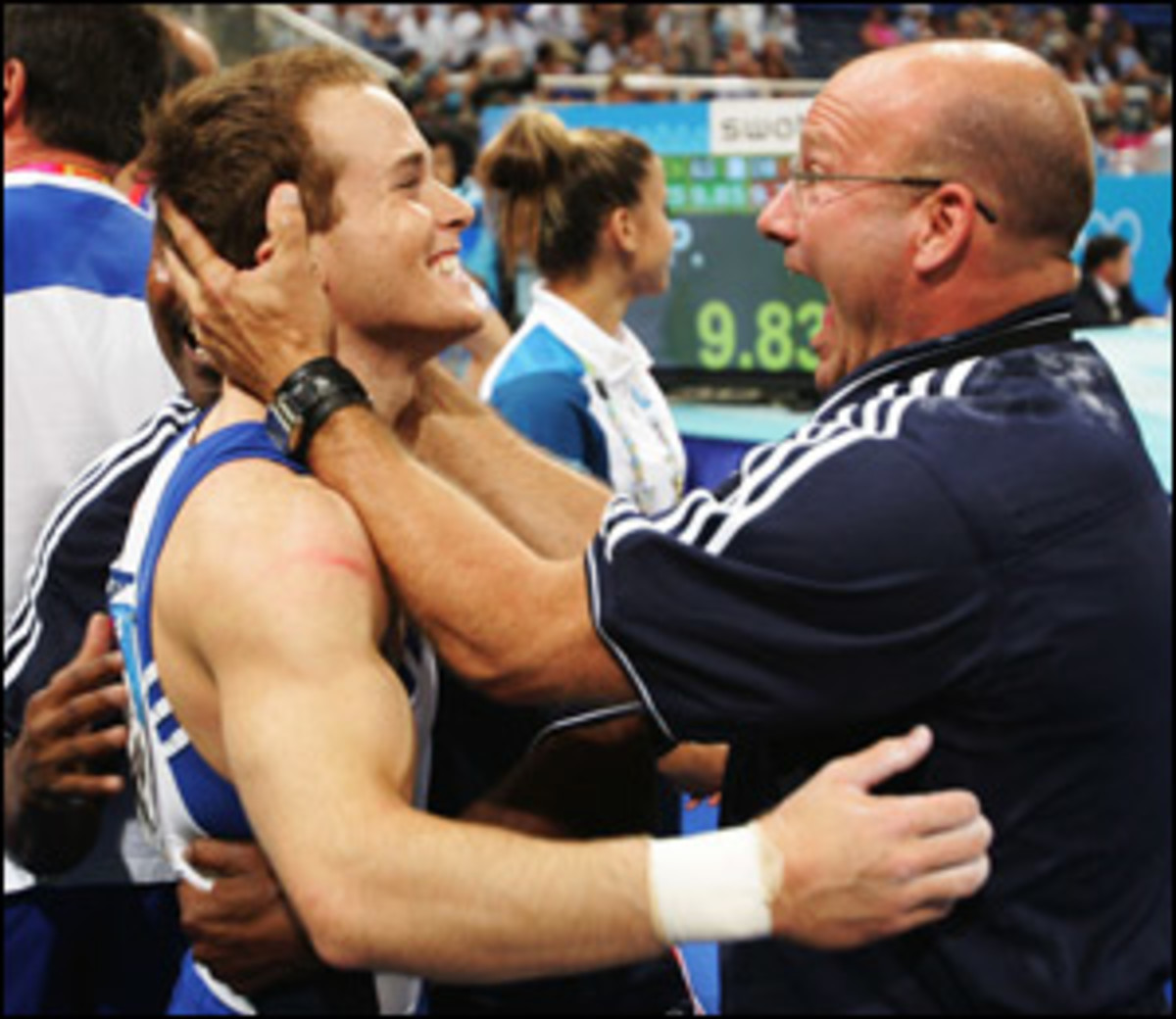
Only gold in mind
Start with A) the bad taste in your mouth from the way people tried to demean your greatest achievements to B) the three-year layoff from a young man's sport, which you are trying to conquer again at 25 to C) the notion that if you have already won the Olympic all-around title, your sport's highest honor, you have nothing left to prove.
So here is Hamm, wiser, sorer, more steeled in the geopolitics of the sport than he ever wanted to be, fighting anew for his place of preeminence. In his return to all-around competition this year, he won the Winter Cup Challenge in Las Vegas. Last weekend, he captured the American Cup international event at Madison Square Garden, surviving minor slips and boasting routines that are tougher than the ones that earned him Olympic gold in Athens. "Even I wasn't sure my passion for gymnastics would return to the previous level," Hamm says now, "but a new chapter always brings new challenges."
Hamm enjoyed a stellar run leading up to the Athens Olympics, becoming the first U.S. male to win the world all-around title in 2003. The controversy started after he repeated the feat a year later. Judges had incorrectly given the wrong start value on the parallel bars to one of Hamm's chief rivals, Yang Tae-Young of South Korea, causing Yang's score to be marked a tenth of a point lower than it should have been.
Hamm subsequently won the competition by less than a tenth, causing some to suggest he should volunteer to give up his gold medal, even though, as some gymnastics insiders pointed out, there were several questionable scoring decisions that affected all sides of the competition. (Yang, for instance, should have been docked two-tenths of a point for having one too many sedentary hold parts during one of his routines.)
When a handful of judges were later disciplined by the International Gymnastics Federation (FIG) for poor decision-making, the incorrect start value given to Yang wasn't even raised as one of the chief transgressions. Hamm stuck to his guns and paid the price. Even FIG President Bruno Grandi suggested he do the sporting thing and surrender his gold medal.
"I had to fight in a court to keep my result the same as a drug user would," Hamm said. "I think some people lost perspective on what had actually taken place. I felt a little hung out to dry."
Hamm stuffed his gold medal into sweat socks in his parents' house in Waukesha, Wisc. Eyeing a future on Wall Street, he returned to school, graduated magna cum laude with a business degree from Ohio State, enjoyed Buckeye football and trained sparingly in the gym.
Last year, Paul and his twin brother, Morgan, an Olympic teammate, resumed full-time training, sparking rumors of another run at the Olympics. Even women's team guru Bela Karolyi took note. "Who in the world would not want to see Paul Hamm compete again?" Karolyi says. "I'm dying to see that sucker."
Paul and Morgan each competed in two events at the 2007 Nationals, with their eye on a full campaign in 2008. But it wasn't until this winter that Paul confirmed his ambitions. "I kind of got itchy again," he says. "It's that feeling that you want to make that commitment because you want to see what's out there again."
Out there in the gymnastics universe sits a new code of points, changed in 2005 because of the scoring issues in Athens. In the same way figure skating dumped its old system of factored placement with a 6.0 roof after controversies in 2002, gymnastics eliminated the perfect 10.0 in favor of an open-ended evaluation that awards separate marks for difficulty and execution.
Now, a 15 or 16 is considered good. Hamm views the new code with skepticism.
"There was pressure on the FIG to create the appearance of change," he says. "Now there is still just as much subjectivity as there always was. In fact, there's more leniency on judges to be able to take deductions."
The emphasis on precision has forced Hamm not only to get back to his old form, but also to upgrade what he did in 2004. He has replaced a double-twisting double-back pass on the floor with combination passes, added strength moves on rings and lengthened his routines on the parallel bars and high bar. "I have to play the risk-versus-reward game," he says. "I have to ask myself how much I can benefit from adding a skill and how much am I leaving myself susceptible to deductions."
Even with the upgrades, Hamm's difficulty level can't match that of Wang Wei, the defending world champ from China, who also will be favored to win the team title at home. "China is going to be so hard to beat, especially in their home gym," says Hamm. "Realistically, we're one of the contenders for second place."
The U.S. team may also be without Morgan, who suffered a torn pectoral muscle in training and is unlikely to train for all six events in time for the June Olympic trials in Philadelphia. His best shot to make the team is as an event specialist on the pommel horse, an event in which the U.S. team is not especially strong.
That leaves Paul to see that the Hamm Dynasty endures in China. "I won't have another chance at this," he says, "and the gym is where I feel I belong."




